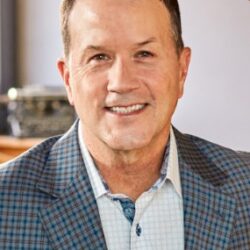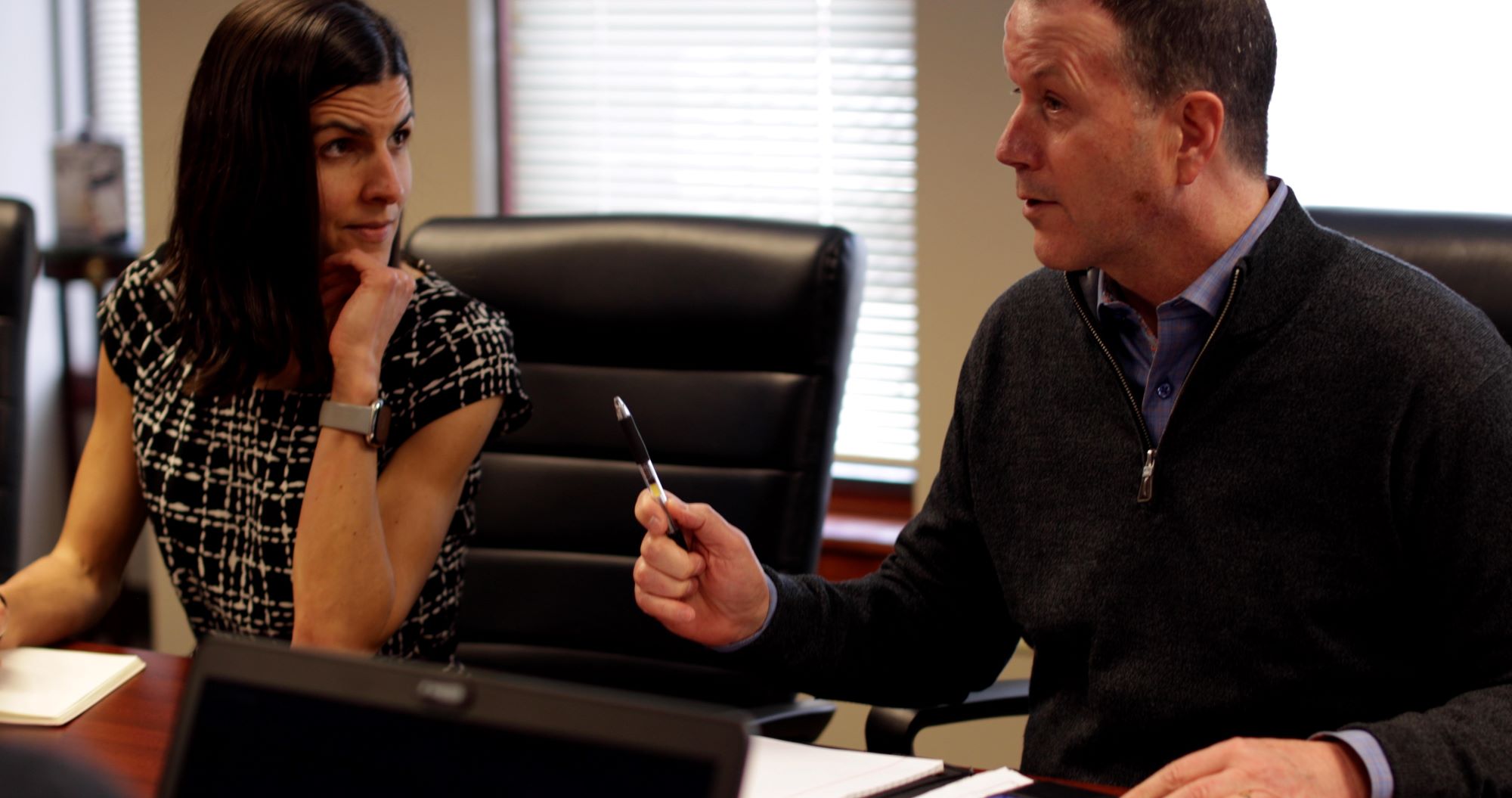Conflict-free retirement advice: Mike Francis shows how it is done
American workers lose tens of billions of dollars every year to mutual fund fees in their 401(k) plans. One advisor wants to help those workers keep more of their retirement funds by using what he calls “conflict-free” advice.

Mike Francis is president of Francis Inc., with offices in Brookfield, Wis., and Oakdale, Minn. He has spent 35 years advising qualified retirement plan clients.
Francis said that from the time he was in high school, he was “fascinated by the whole concept of making money with money.” After graduating from college with a degree in economics, he began working for a wealth management firm, cold-calling to find clients and doing all the things that young college graduates do to launch their careers in the financial services field.
The 401(k) plan was in its infancy then, having sprung from the Revenue Act of 1978. By 1983, nearly half of all large firms in the U.S. began offering or considered offering a 401(k) plan for their workers. Sixteen years later, assets in 401(k) plans exceeded $1 trillion, with more than 30 million active participants.
Francis started working with 401(k)s in 1988 when a client asked him “if you can help my company start one of these newfangled things called a 401(k) plan.”

After doing some research, Francis presented a 401(k) plan to his client, who agreed to offer it to his employees, but on one condition – Francis would accompany the client to his company’s three locations to present the plan to his 700 employees.
Francis agreed and after explaining the 401(k) to the workers, he realized no one had taken the time to educate the workers about their retirement plan before.
“This was my light bulb moment,” he said. “I said to myself, ‘Mike, there are tens of thousands of guys like you trying to help Mr. Business Owner with his money. But there’s nobody helping these people.’ At that point, I thought this 401(k) thing might have legs. And if this program sticks around for awhile, there will be a real market for it and a real need for communication, education and support for the participants in these programs because I’ve just learned the American worker is unprepared to answer the kinds of questions that these programs require them to answer.”
Making the switch
Francis said he decided to switch from building a wealth management practice to building a 401(k) advising practice.
“As far as I knew, there was no 401(k) advising going on at that time,” he said. “So I started making phone calls to small and midsized businesses and asking them, ‘Do you have a 401(k) plan? Do you want to let me try to make it better for you?’ Or, if they didn’t have a 401(k) plan, I would ask them whether they wanted me to help them start one.”
Francis spent a few years working on his wealth management practice while soliciting business for and building his 401(k) consulting practice. By 1993, the 401(k) portion of his business grew to the point where he decided to sell off his retail wealth management book of business to other advisors in his office and use the proceeds from the sale to hire two advisors to help him in the 401(k) space.
In 1997, Francis’ practice took what he called “a minor detour.”
“I found myself spending almost as much time in corporate meetings, talking to clients - not about investment issues or recordkeeping issues - but talking to them about legal issues,” he said.
“It was in the mid-1990s when some of the first 401(k) lawsuits were filed, the news of these hit the press and clients started asking, ‘What did they do wrong? Why are they getting sued? And what do we have to do to not get sued?’ So I found myself spending more time reading legal complaints and judges’ rulings and trying to understand what this was all about.”
Law school changes his view
After spending more than a year digging into the lawsuits surrounding 401(k)s, Francis said he decided to enroll in Marquette University’s law school evening classes. He graduated in 2001.
“Law school changes the way you look at the world,” he said. “I began to recognize that the environment I was operating in was not compliant with ERISA, specifically pertaining to all of the conflicts of interest that existed in that world.”
Francis said that realization led to a decision. “I could either get out of the advice-for-a-fee to the retirement plan sponsor business. Or I could start selling stuff pretty much like everybody else does. Or I could cut the cord from the mother ship, start my own firm, build that firm without these conflicts and do it the way it’s supposed to be done under the law.”
After choosing to build his firm, Francis went from a staff of five people doing about $700 million in business to a staff of 24 people doing more than $13 billion in business today.
Francis Inc. serves about 90 clients, with an average client having 2,000-3,000 employees.
“It’s a mid-market-focused practice at this moment. But we continue to win business that is larger and larger,” he said. “My hope is that we’ll continue to move upstream as the word gets out about us.”
What is conflict-free advising?
Francis describes his practice as providing conflict-free advising. What does that mean?
“There are numerous conflicts of interest that find their way into the investment advice business,” he explained. “We’ve built a structure here that endeavors to eliminate all of them. There are a couple of key concepts at work.
“First, we sell no investment products. We accept no revenue, compensation or remuneration of any kind from any investment management firm or virtually any firm in the industry. One hundred percent of our firm’s revenue is the hard-dollar flat fees that we charge our clients. That’s important, because what that means is that when a client comes to us and asks, ‘What do you think about this fund?’ or ‘What do you think about this managed account strategy?’ or ‘What do you think about this trust platform?’ we can answer that question without conflict. Our client knows that we are sitting squarely on their side of the table of value, weighting that provider through the lens of what's best for them, untainted by any monetary motivation that might come from those providers themselves.”
Another concept in conflict-free advising he said, is that his firm does not charge an asset-based fee to clients.
“An asset-based fee creates a conflict when a client is discussing or debating whether to roll assets into a plan or take money out of a plan,” he explained. “If your fee is based on assets under management, you are going to be persuaded – even if it’s only subconsciously - to recommend things that build up planning assets, when that might not actually be the best route for the client to take.”
Francis said when a client hires his firm, he estimates how much time he will need to spend serving that client. “Depending on what they’ve asked us to do for them, we will quote either a flat fee of $70,000 a year for that service, or a flat fee plus an hourly fee where you get so many days for the flat fee and then an additional fee if you go over that number of days. This is a very easy to understand fee. And most important, our fee cannot be affected by the decisions the client or the plan participants make.”
In addition, Francis said his firm does not contract with individuals.
“That’s important because the most important question a worker is likely to ever ask their employer is what should they do with the money that has built up in their retirement plan,” he said. “And when that employer puts an advisor who sells retail wealth management products or services in front of that employee, I don’t have to describe the conflict that exists there.”
Francis has been a featured columnist for the Milwaukee Journal Sentinel writing about 401(k) issues since 1995, as well as a frequent public speaker on retirement plan governance and investment issues.
He said he believes that the one thing American workers should know about investing for retirement “is whether the advisor they’re getting advice from is conflicted.”
“There's a better way to do it. You can find advisors who will sit down with employees, and actually tell them if you do this, your costs are here; if you do this, your costs are there.”
Susan Rupe is managing editor for InsuranceNewsNet. She formerly served as communications director for an insurance agents' association and was an award-winning newspaper reporter and editor. Contact her at [email protected]. Follow her on Twitter @INNsusan.
© Entire contents copyright 2023 by InsuranceNewsNet.com Inc. All rights reserved. No part of this article may be reprinted without the expressed written consent from InsuranceNewsNet.com.
Susan Rupe is managing editor for InsuranceNewsNet. She formerly served as communications director for an insurance agents' association and was an award-winning newspaper reporter and editor. Contact her at [email protected].





Annuity sales up 27% through six months, LIMRA reports
Pacific Life denies fault, asks court to dismiss IUL lawsuit in Washington state
Annuity News
Health/Employee Benefits News
- The Operating Room's Time Clock
- Millions of Texans could face higher costs for worse health insurance
- OUR VIEW: Health care is missing its foundational mark
- My Spin: What if the state health plan goes broke?
- Plainfield Mayor Addresses "Misinformation" Regarding Retired Firefighers' Health Benefits
More Health/Employee Benefits NewsLife Insurance News
- 10 reasons we must embrace the Northwestern Life Insurance building in Minneapolis
- AM Best Revises Outlooks to Stable for Lincoln National Corporation and Most of Its Subsidiaries
- Aflac Northern Ireland: Helping Children, Caregivers and the Community
- AM Best Affirms Credit Ratings of Well Link Life Insurance Company Limited
- Top 8 trends that will impact insurance in 2025
More Life Insurance NewsProperty and Casualty News
- Legal Notice
- Nearly 40% of restaurant owners lack business insurance coverage for extreme weather
- Recent storms are wakeup call about flood insurance
- Dems snub medical malpractice reform
- DJ Bettencourt: Weathering An Evolving Insurance Landscape
More Property and Casualty News